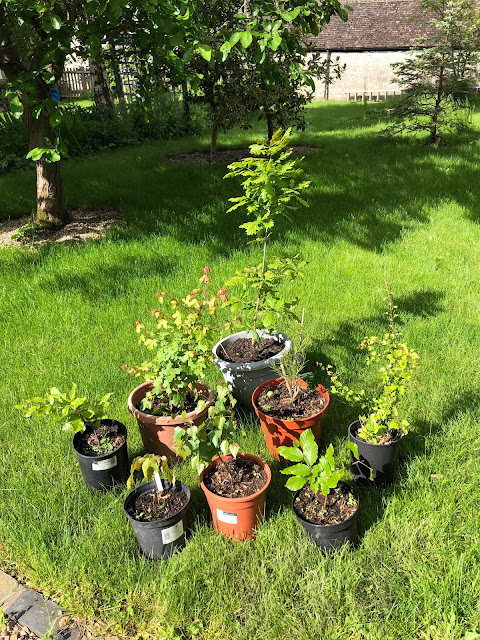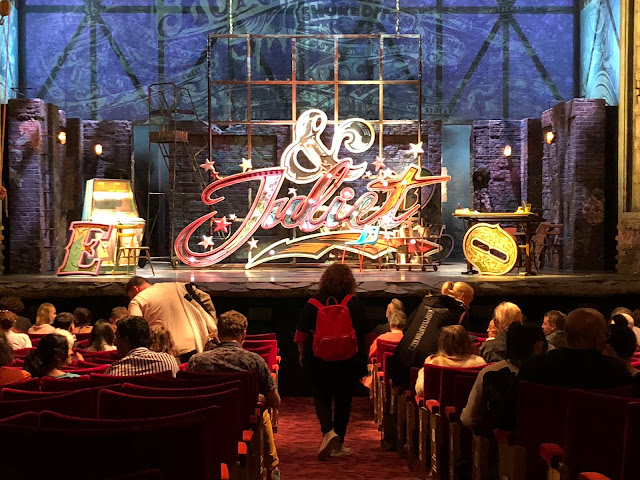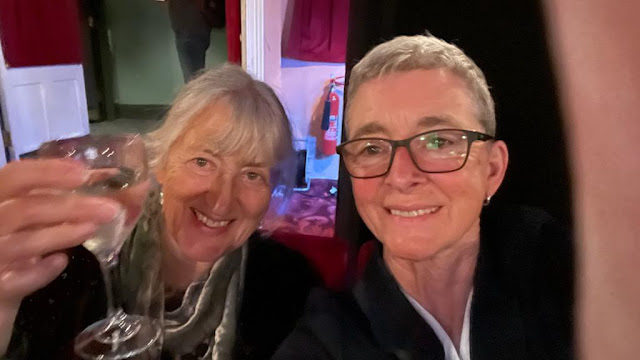Do certain types of weather bring particular memories to mind for you?
They do for me.
Sitting outside on warm summer afternoons with the sun shining on the copper beeches and the wood pigeons calling reminds me of my childhood on the farm.
Whatever the weather, I always think of my father in the last week of May because that is when he died, 20 years ago. But this week, with the cold winds and the rain echoing that very particular week, the memories have been stronger than ever.
In my journal at that time I described the day that we buried him:
'All week there has been a succession of sunshine and showers, and a gusty wind. It was the same this morning. We kept looking at the sky to see if there was enough blue sky to make a sailor a pair of trousers and there never was....
...The dale was looking lovely, and the river running a full pot. The rain on the new May leaves made their freshness glisten. There was cow parsley and sweet cicely billowing on the verges all of the way, and the may blossom coated the hawthorns with cream. Lady Hill looked its best, in his honour, with the trees silhouetted against the misty, rainy distance. On the green at Bainbridge the leaves on the big copper beech were fully out, but still new enough to be at their richest intensity. Pa would have commented on the tree.'
Today, in his honour, I'm sharing with you again this piece I had in The Times about losing him:
Voyage around my
father
My
85 year old father died this year. The private family burial was a beautiful
occasion, the day so special that the first thing I wanted to do when I got
home was to write to my father and describe it, tell him what had happened, how
we had been and behaved, what everyone had said. So I wrote him a letter and
sent a copy to my brothers and sisters and my mother. It makes us cry but
captures the day on paper. I don’t know why that is a comfort but it is.
But
then my mother asked me to write my father’s obituary for the local paper. This
task hung over me like a dreaded piece of homework. I did not want to be
writing my father’s obituary, because I did not want my father to be dead.
Once
begun it was soon completed, but not to my satisfaction. The paragraphs about
his schooling, his work, his successes and his triumphs described the public
man. He sounded like a thoroughly accomplished chap (as he was) but I hated
that obituary. The required formal style, and the sensitivity to my mother’s
feelings, constrained me. I could say that he was brought up a Quaker, but not
that for the last ten years of his life he would lie on the sofa every
afternoon watching the racing on telly. I could say that he was a keen hockey
player but not that he had a passion for Stilton cheese and Craster kippers and
home grown raspberries. I could say that he was a successful freelance writer,
but make no mention of his sometimes less than happy use of words - that his
criticism could be scorching, his rudeness outrageous, or that his acerbic
tongue could reduce a sensitive grandchild to a pulp.
Neither
could I say how fervently he loved his family, how sure they were of this, how
much they valued his wit, intelligence, knowledge and affection, and how much
they will miss him sitting smoking in the corner being crabby, and then at the
end of the evening asking for a goodbye cuddle. The last time I visited him at
home I knew he was ill because it was the first time he did not say “I had a
shave especially, so I could give you a kiss.” This could not go in the
obituary either: so much for obituaries.
I
don’t think I ever described him as “a wonderful father” but so what? He
was my father and I loved him. All my life I have felt as
though I sailed in a sturdy ship, my family, looking down on other mortals
whose ships were not so handsome and fine as mine. When he died it was as
though someone had blown a hole in the side of our craft.
I
am surprised that at 52 I am so shaken by his death. I am not a child. I have a
large and loving family. And dying at 85 he was not robbed – he had a
good innings is the cliché. But I am sad for me, not for
him.
As
children we would roll our eyes when he told us, yet again, about his
great-grandfather’s heifer which won first prize in the London Show, and then
“was roasted whole for the poor of Chelsea.” Now he is gone I see all the
dog-eared stories of his farming forebears as weighty anchors to our family
history.
Searching for written records of them in his desk I found a photograph of his mother: it could have been me in Edwardian dress. I used to hate being likened to someone else, but this photograph has been a strange comfort. I now feel like a link in a long chain stretching back into the past, and forward through my children into the future. My father may be gone, but he is still a valid link. He may no longer sit at the head of the table repeating his catch-phrase “As good a Stilton as I’ve tasted in years,” but at future family gatherings one of us can say it for him. “Only if the cheese merits it,” says my brother. Ah, that critical gene again.
© Sue Hepworth/Times newspapers 2022 published here with kind permission of Times newspapers
Someone mentioned his hat yesterday, that the grandchildren used to dress up in, but now they're adolescent, it's clear-out time.
"it's a long time to have a hat hanging around," they said.
It's a long time to be without a father.


































